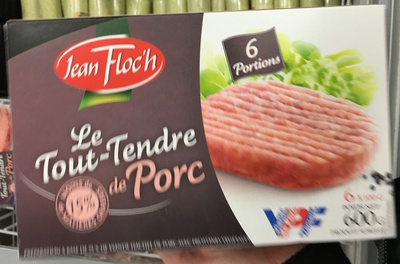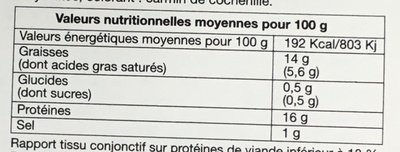Le Tout-Tendre de Porc - Jean Floc'h - 600 g
This product page is not complete. You can help to complete it by editing it and adding more data from the photos we have, or by taking more photos using the app for Android or iPhone/iPad. Thank you!
×
Barcode: 3700190304236 (EAN / EAN-13)
Quantity: 600 g
Brands: Jean Floc'h
Categories: Meats and their products, Frozen foods, Meat preparations, Meats, Frozen meats, Frozen meat preparations, Ground meat preparations, Frozen ground meat preparations
Labels, certifications, awards: French meat, French pork
Origin of ingredients: France
Manufacturing or processing places: France
Traceability code: FR 56.074.001 CE - Guénin (Morbihan, France)
Countries where sold: France











